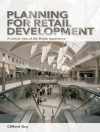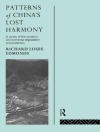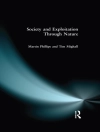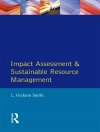This provocative collection of essays challenges traditional ideas of strategic s- tial planning and opens up new avenues of analysis and research. The diversity of contributions here suggests that we need to rethink spatial planning in several f- reaching ways. Let me suggest several avenues of such rethinking that can have both theoretical and practical consequences. First, we need to overcome simplistic bifurcations or dichotomies of assessing outcomes and processes separately from one another. To lapse into the nostalgia of imagining that outcome analysis can exhaust strategic planners’ work might appeal to academics content to study ‘what should be’, but it will doom itself to further irrelevance, ignorance of politics, and rationalistic, technocratic fantasies. But to lapse into an optimism that ‘good process’ is all that strategic planning requires, similarly, rests upon a ction that no credible planning analyst believes: that enough talk will miraculously transcend con ict and produce agreement. Neither sing- minded approach can work, for both avoid dealing with con ict and power, and both too easily avoid dealing with the messiness and the practicalities of negotiating out con icting interests and values – and doing so in ethically and politically critical ways, far from resting content with mere ‘compromise’. Second, we must rethink the sanctity of expertise. By considering analyses of planning outcomes as inseparable from planning processes, these accounts help us to see expertise and substantive analysis as being ‘on tap’, ready to put into use, rather than being particularly and technocratically ‘on top’.
Tabela de Conteúdo
Debating Spatial Planning in a Strategic Perspective.- How to Enhance Creativity, Diversity and Sustainability in Spatial Planning: Strategic Planning Revisited.- Medium-Sized Towns, Strategic Planning and Creative Governance.- Strategic Planning as a Field of Practices.- On Strategic Planning and Associated Issues.- Notes on Strategic Processes in Land Use Planning.- Post-structural Complexity: Strategic Navigation in an Ocean of Theory and Practice.- Exploring Phenomena.- Spatial Planning, Urban Policy and the Search for Integration: The Example of a Medium-Sized City.- Strategic Planning and Urban Governance: Effectiveness and Legitimacy.- Socio-Economic Regeneration Initiatives and Strategic Governance in Old Industrial Towns Outside of Agglomerations.- When Strategy Meets Democracy: Exploring the Limits of the ‘Possible’ and the Value of the ‘Impossible’.- Impossible Sustainability and the Post-political Condition.- Cognition Dynamics and Knowledge Management in Strategy-Making.- Futures Studies and Strategic Planning.- Managing Argumentative Discourses in Multi-Actor Environments.- Frames, Multi-Agents and Good Behaviours in Planning Rationales.- Knowledge Management and Strategic Self-Sustainability: A Human Systems Perspective.- Bricolaging Knowledge and Practices in Spatial Strategy-Making.- Value-Based Approach in Strategic Thinking.- Creative Evaluations for a Human Sustainable Planning.- Economic Evaluation: The Contemporary Debate.- Social Multi-Criteria Evaluation Applied: A Community Planning Experience.- Driving Forces and Spatial Impacts: An Integrated Approach for Small- and Medium-Sized Cities.- Thinking Through Complex Values.












